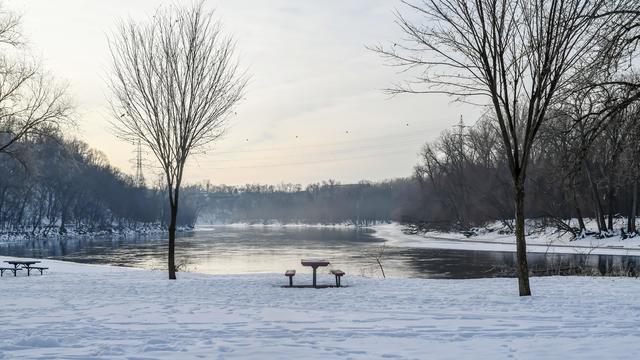
Cold weather advisory in Twin Cities through early Thursday
A cold weather advisory is in effect from Wednesday night until 9 a.m. Thursday in the Twin Cities.
Watch CBS News

Director of Meteorology Mike Augustyniak was drawn to Minnesota by a love of active weather, and the opportunity to forecast for some of the most weather-savvy television viewers in the country.
Since joining the WCCO team in 2008, his forecasts have helped you prepare for Minnesota's increasingly extreme weather — including one of the coldest winters on record, one of the hottest summers on record, and the largest single-day tornado outbreak in Minnesota history — and all the small-but-important moments between. As the creator of the CBS Weather Watcher Network, leader within the CBS eTeam and Central Weather Group, his expertise helps to support and train CBS newsrooms across the country.
Mike's interest in weather began at an early age.
"I think my curiosity about the weather was fueled by the fact that, as a little guy, I was absolutely petrified of thunderstorms!"
In time (and with the help of a book called "Hippo Thunder"), Mike outgrew his fear, deciding in eighth grade that he wanted to study weather in college.
"The answers I gave on a 40-question 'interest survey' were fed into a computer, and the computer returned several careers that I might enjoy," Mike explained. "'Meteorologist' was one of the jobs the computer returned, and right then I knew it was the job for me." Mike studied atmospheric science under several of the world's leading research scientists at the University at Albany, where he received his Bachelor and Master of Science degrees. Findings from his master's thesis - original research on a local terrain effect called Mohawk-Hudson Convergence — is currently in use to help meteorologists make more accurate forecasts around the region.
Today, he continues to support lifelong learning, science, and scientists by serving as the past Commissioner on Professional Affairs for the American Meteorological Society and its 12,000 members. He is active in local and national non-profit organizations such as the National Marrow Donor Program (formerly 'Be the Match'), Twin Cities Pride, Twin Cities United Way and more.
Mike has appeared on the BBC, the Ellen DeGeneres Show, CBS Sunday Morning (where he serves as the show's meteorologist) and many other CBS News outlets. His work has been recognized with multiple Emmy Awards for broadcast excellence. He is an AMS Certified Broadcast Meteorologist, an AMS Certified Consulting Meteorologist, and is also a member of Phi Beta Kappa.
In his free time, Mike stays active by going to the gym, biking, mixing cocktails and traveling with his husband.

A cold weather advisory is in effect from Wednesday night until 9 a.m. Thursday in the Twin Cities.
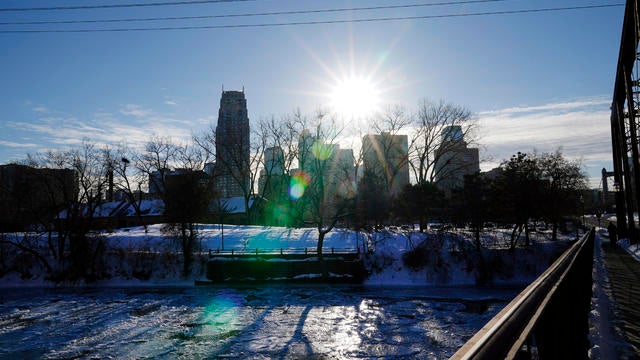
Highs in the Twin Cities on Tuesday will be in the single digits, and some spots around the state won't get above zero.
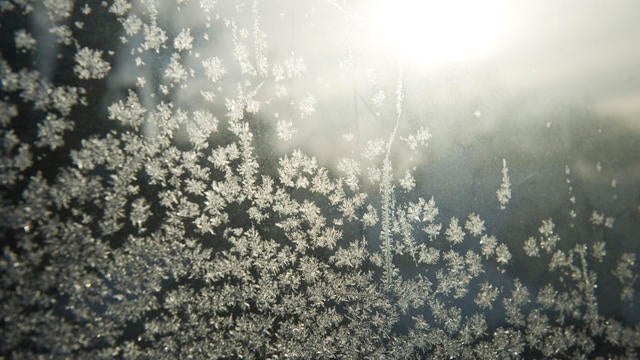
Monday marked the seventh consecutive day of below-average weather in the Twin Cities, and the trend will continue for around 11 more days.
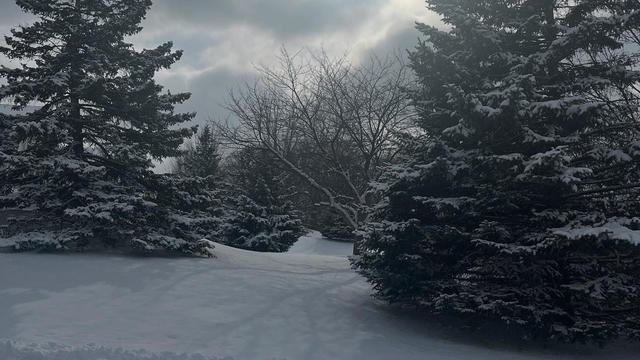
Cold will take over the Twin Cities on Monday, and there's a slight chance for some light snow.
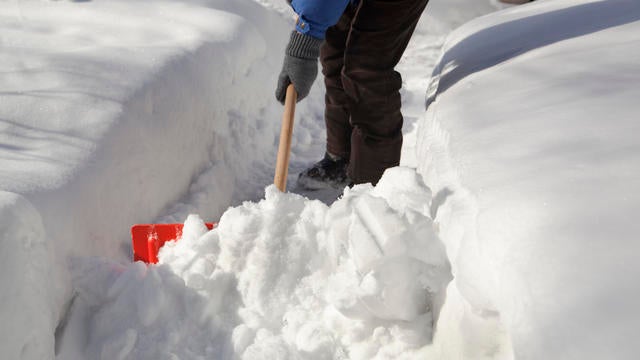
A storm bringing accumulating snow is anticipated to arrive Friday night into Saturday morning.
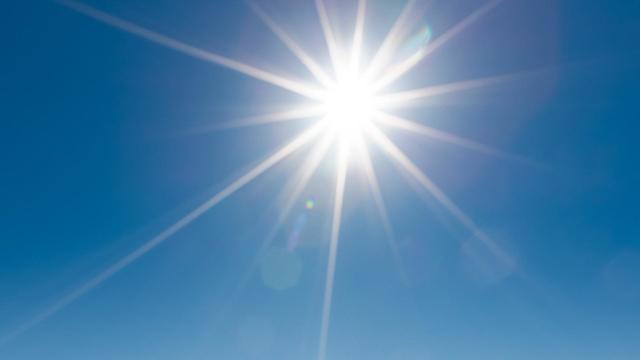
The Twin Cities are enjoying record-breaking warmth on Thursday, but a cooldown is right around the corner.
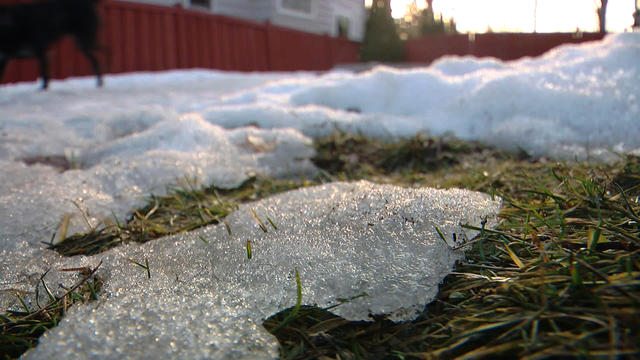
Tuesday will be breezy and warm with clearing clouds in the Twin Cities.

Highs across the state will be in the single digits, and even colder in spots.
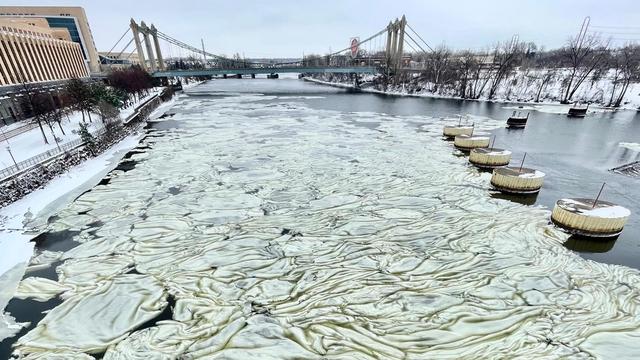
Frazil ice has been spotted in Minnesota following Thursday's winter storm. But what is frazil ice?
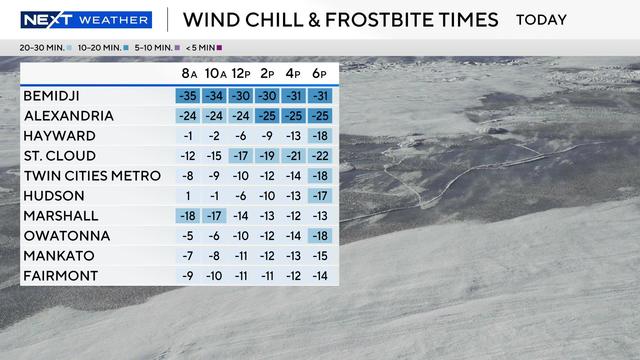
Cold weather advisories are in effect for northern Minnesota from Wednesday evening through Thursday morning for dangerous wind chills around minus 35 degrees.
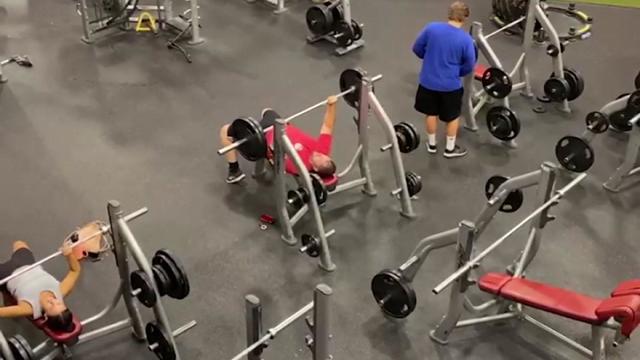
Twin Cities-area strength coach Carl Champion offers expert advice for setting and sticking to fitness goals next year.
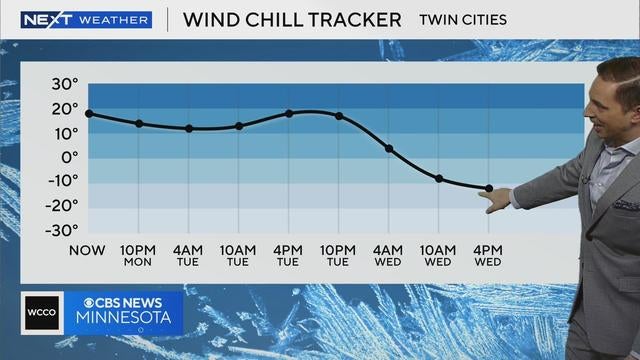
The Twin Cities will be mostly cloudy and windy on Monday evening, with temperatures falling back to around 20 degrees.
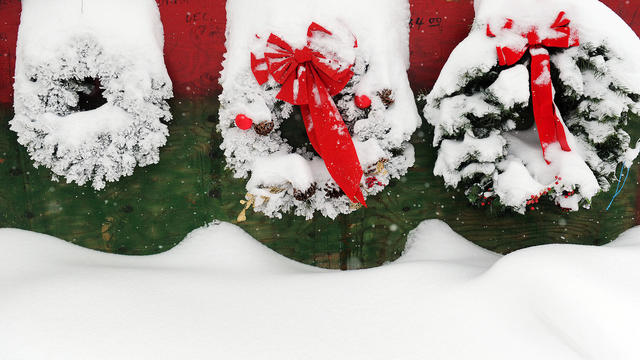
States across the northern United States have a high chance for a white Christmas this year, according to weather experts.

An arctic cold front is pushing into Minnesota on Wednesday, along with wind speeds of up to 50 mph.

After a slow slog through the rain on Monday night and early Tuesday, a big storm will bring 1-3 inches of snow to the Red River Valley by Wednesday.